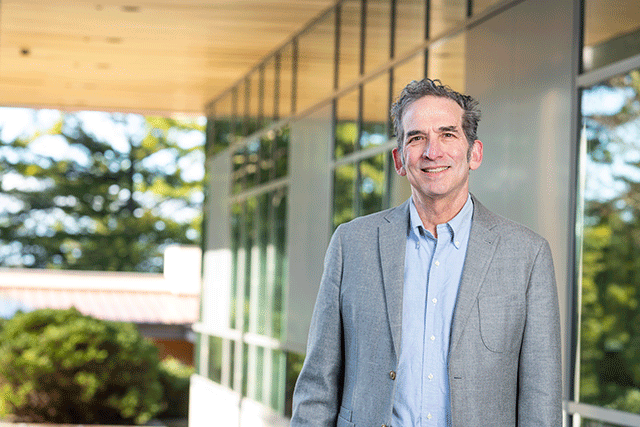
Gold and his co-authors recently published their findings in the New England Journal of Medicine (NEJM). The influential journal is read by 1 million people in print and online each week and is widely considered the world’s most referenced medical journal.
“There is a disproportionate lack of people from traditionally underrepresented groups in academic medicine,” explains Gold. “Research shows that patients respond better to doctors and caregivers that look like them. So aversive racism, which is often internalized by individuals in the dominant group, has real and harmful outcomes in the healthcare system.”
Gold and his co-author’s article, “Calling Out Aversive Racism in Academic Medicine,” examines how structural racism, which is embedded in laws, policies, and institutions, is exacerbated by individual practices of aversive racism that create barriers for underrepresented minorities.
“Our article illustrates how and why people of color face barriers to career advancement in medicine,” explains Gold. “Doctors and medical professionals who are unfamiliar with social dominance theory, which comes from social psychology, are reading this article and saying, ‘Now there’s a name for the kind of discrimination I experienced,’” explains Gold.
In their research, the authors found that diverse applicants to competitive residency programs and clinical clerkships were routinely evaluated less favorably than their white peers. Subjective phrases like, “They’re just not a good fit,” or “I’m going with my gut on this,” were routinely used by evaluators, even those who considered themselves to be informed and unbiased regarding race.
“In areas ranging from medical school admissions decisions to executive leadership appointments, aversive racism in academic medicine impedes diversity, equity, and inclusion efforts,” writes Gold and his co-authors. They further explain that aversive racism undermines the investments made by many institutions to combat structural racism, a more broadly understood concept.
A social psychologist trained at UCLA, Gold’s expertise on the psychology of prejudice was critical to the article’s central argument that implicit bias contributes to subjective decision-making processes which dictate who advances up the ranks of academic medicine––and who does not.
Gold has taught a popular undergraduate course on the psychology of prejudice since arriving at Cal Poly Humboldt in 2000. Throughout his career, Gold’s research has examined how power affects influence and relationships around transgressions, in relation to the environment, marijuana use, racism, and more.
For Gold, publication in a prestigious medical journal presents a real opportunity to make a difference. Only published last December, the article is already making an impact in academic medical circles and being considered as essential reading material for leaders at University of California medical schools.
“Using scholarship and research to make social change is what Cal Poly Humboldt is all about,” says Gold. “Our shared values of inclusion and equity is what we offer our students, empowering them to make the world a more just place.”